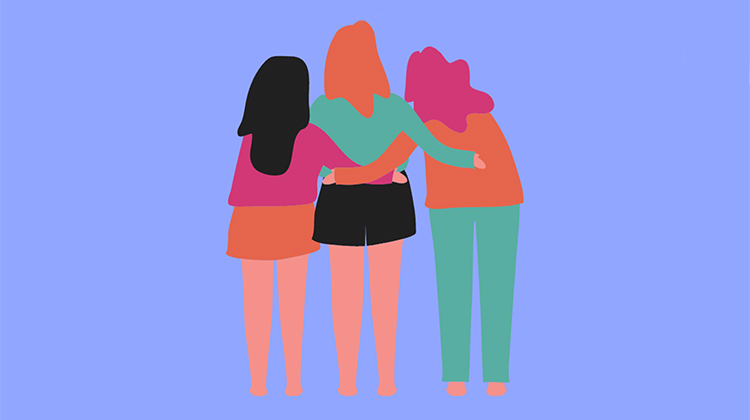What Happens to Girls in Year 9 is Pivotal

Year 9 is a tipping point where girls are right in the thick of it. Their hormones are surging, they’re trying to work out who they are, and their desire for independence is clashing with their need for belonging. It’s the year many girls start to feel more like adults than children, but they don’t have the same sense of perspective or impulse control.
We see a huge shift in confidence, body image, and social dynamics around this age. Girls start comparing themselves to peers and to the influencers they see online. At the same time social hierarchies at school also become more pronounced which creates a pressure cooker environment where exclusion, gossip, and other subtle forms of bullying can occur.
We also notice a rise in anxiety, perfectionism, and sometimes disconnection from learning. Some girls disengage from school because they feel misunderstood and overwhelmed. If these issues aren’t addressed, they can lead to feelings of poor self-worth, unhealthy relationships, and mental health struggles.
Girls in Year 9 need connection and healthy coping mechanisms. They need safe spaces where they can talk openly without fear of judgment about the pressures they face around body image, friendship drama, comparison culture, relationships, and social media.
Parents absolutely play a crucial role but too many feel shut out because girls of this age tend to seek more autonomy and advice from peers instead. What they should keep in mind is that they can stay connected without being controlling. Parents should focus on listening non-judgmentally and asking open questions like “how are things feeling for you lately?” instead of straight up asking “what’s wrong?”.
Boys need to be part of the conversation too. Many of the social challenges girls face like peer pressure, misogyny, double standards, online harassment are not ‘girl problems’ alone. Boys need to be taught empathy, respect, consent, and emotional regulation so they can be part of the solution instead of contributing to this cultural problem.
Devices are both a lifeline and landmine. On one hand, social media gives girls a way to connect and express themselves. On the other it can amplify a toxic comparison culture, perfectionism, and pressure to conform.
We have to remind girls that what they see online is not real and that constant scrolling is designed to keep them chasing validation. Girls should be taught to take breaks, unfollow toxic accounts, and use social media mindfully to protect their mental health.
Schools and parents can help by establishing tech-free zones and having open conversations about social media use to create balance and awareness.
Schools have enormous influence, which is why many are realising they need whole-year interventions rather than one-off programs that run once in a blue moon. The best programs are proactive and sustained, which shows that the school is truly committed to creating a culture of respect for the mental and emotional wellbeing of their students.
Experience-led mentoring works well because girls relate best to relatable, real-world stories. We also provide staff training to equip teachers with the tools to recognise and deal with the tough situations that come with adolescence.
We’ve seen schools transform their entire culture by investing in preventative education that treats these skills as foundational to life.
The ideal outcome is lasting wellbeing that travels with them well into adulthood. We want girls to leave with a sense of confidence that doesn't depend on likes, appearance, or peer validation. We want them to have a support network and tools to help them navigate boundaries and foster relationships which feel safe and supportive.
If we can equip girls with these tools now, we will be setting them up for a lifetime of healthy, rewarding relationships. In terms of prevention, we are in the midst of a domestic violence crisis and these are conversations we should be having early and often to encourage a culture of respect in relationships.
Our wellbeing program gives girls context and perspective to help them understand that the emotions they’re experiencing are valid and part of growing up and that they have choices in how they respond. The SiS program teaches relationship red and green flags to give them the tools they need to be emotionally resilient, trust their intuition, and support each other.
We focus on practical strategies like learning the difference between supportiveness and possessiveness, unpack victim blaming culture, learning to say no without guilt, and self-compassion practices to silence their harsh inner critic.